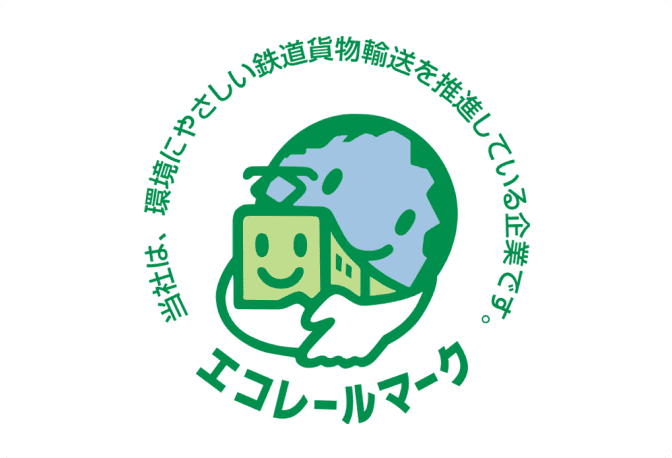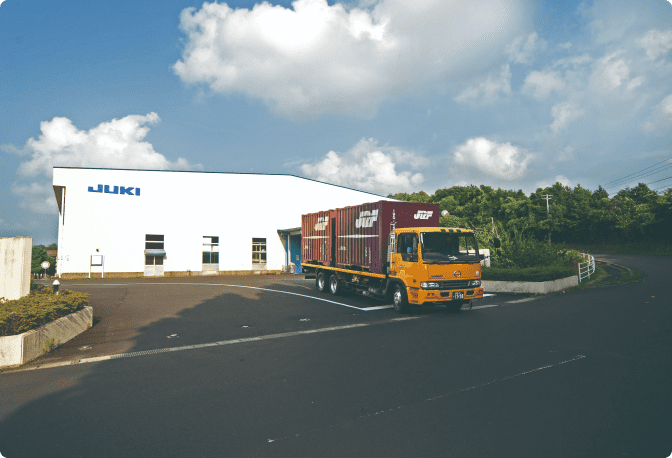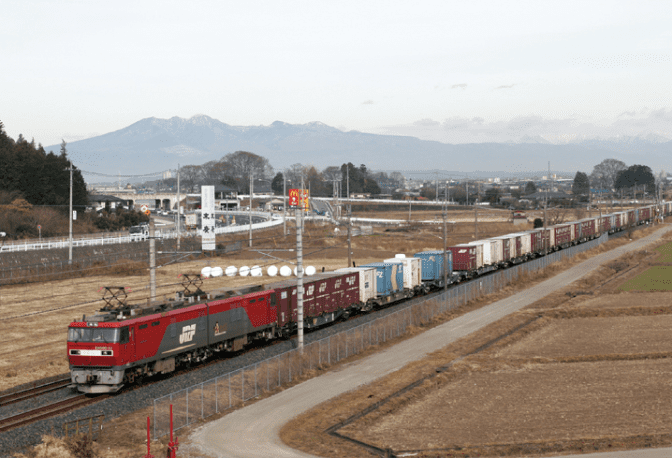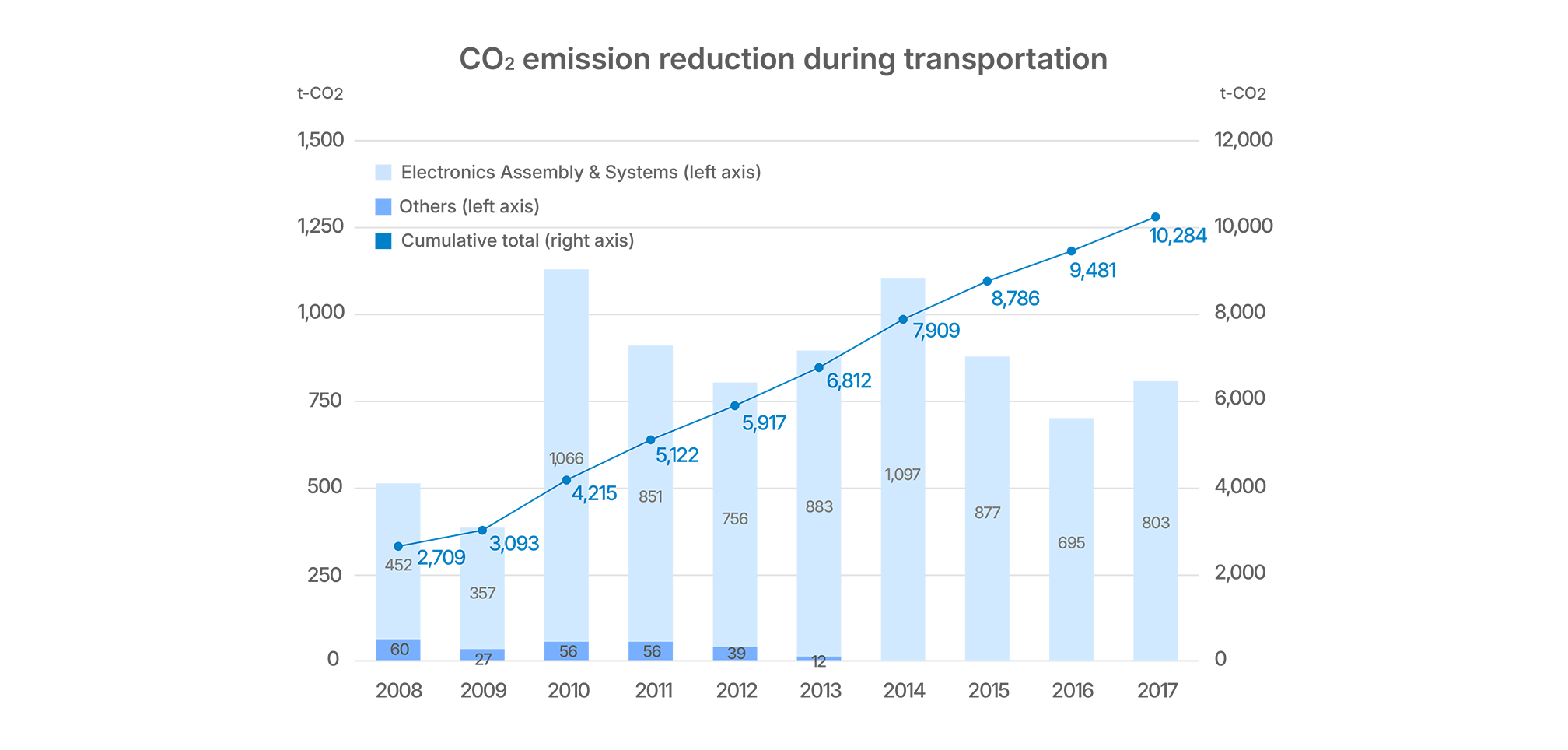Green Procurement and Logistics
Green Procurement
We have established procurement standards for parts and materials used to provide environment-conscious products to our customers by maintaining and improving the environmental compatibility of our products.
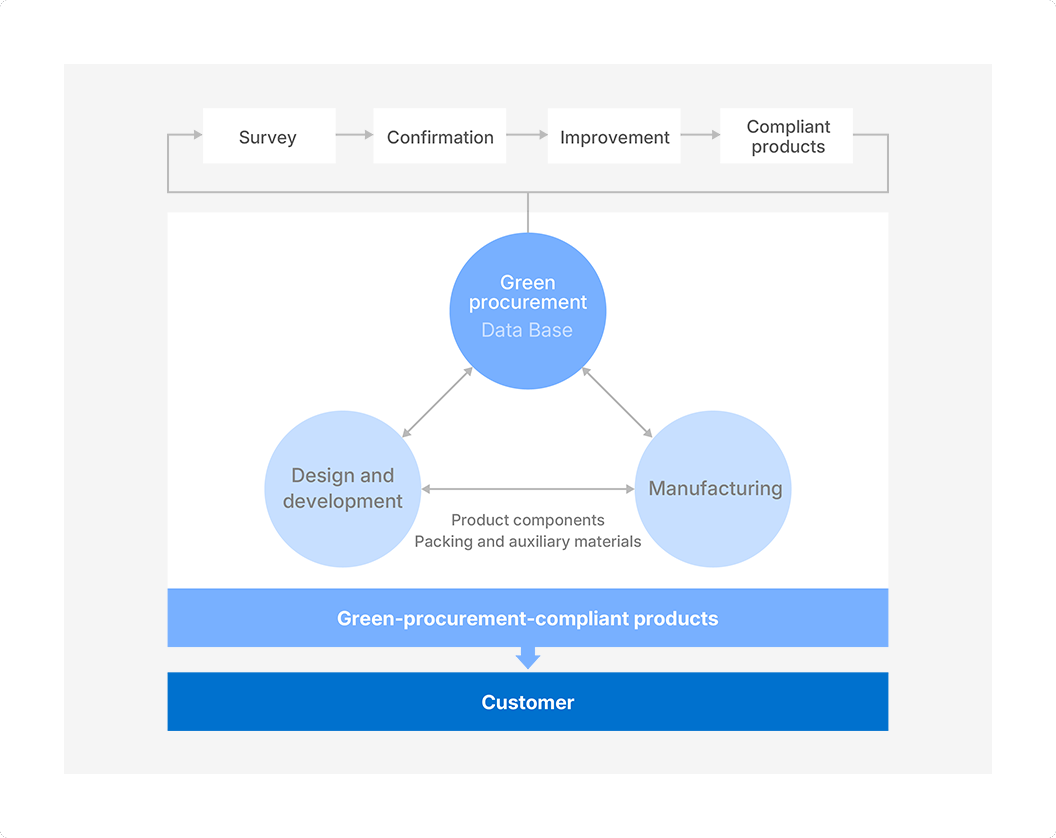
Green procurement guidelines
Annex and appendix
- Annex 1 List of Substances to be Managed A-1: Prohibited Substances
- Annex 1 List of Substances to be Managed A-2: Applications exempted from the RoHS Directive
- Appendix 2 (Form 1) Evaluation Sheet for Environmental Management Initiatives
- Appendix 2 (Form 2) Non-containing Guarantee of Prohibited Substances
- Appendix 2 (Form 3) Green Procurement Nonconformity (Improvement/Confirmation) Notice
Green Logistics
We are promoting initiatives to reduce CO2 emissions in the transportation of products.
We are working to reduce CO2 emissions through the round use of depot-mediated containers.

April 2001
Rail transportation of ocean containers commences for the export of industrial sewing machines.
January 2005
Inland transportation for the export of chip mounters manufactured by JUKI DENSHI KOGYO CO., LTD. (currently JUKI INDUSTRIAL EQUIPMENT TECHNOLOGY CORPORATION, Yokote-shi in Akita Prefecture) is expanded to include rail transportation between Akita and Keihin Port.
March 2010 onward
Rail transportation between Morioka and Keihin commences with the construction of a new Inland Depot (a terminal for marine containers located inland) at JR Morioka Freight Terminal Station.
Eco Rail Mark Certification
In February 2009, the Ministry of Land, Infrastructure, Transport and Tourism awarded JUKI certification as a “Company working on Eco Rail Mark” in recognition of its active engagement in eco-friendly rail freight transportation.
The “Eco Rail Mark” is a labeling system established by the Ministry of Land, Infrastructure, Transport and Tourism to reduce the environmental load of logistics.
The JUKI Group began using this transportation method in 2005 to let consumers know that rail freight transportation has a lower environmental load than truck transportation, emitting about one-tenth less CO2 (according to the website of the Japan Railway Freight Association).
At that time, more than 41% of JUKI’s entire domestic overland transportation of export containers, mainly for the shipment of industrial sewing machines and chip mounters, was performed by rail cargo transportation. The certification was granted based on this track record.
